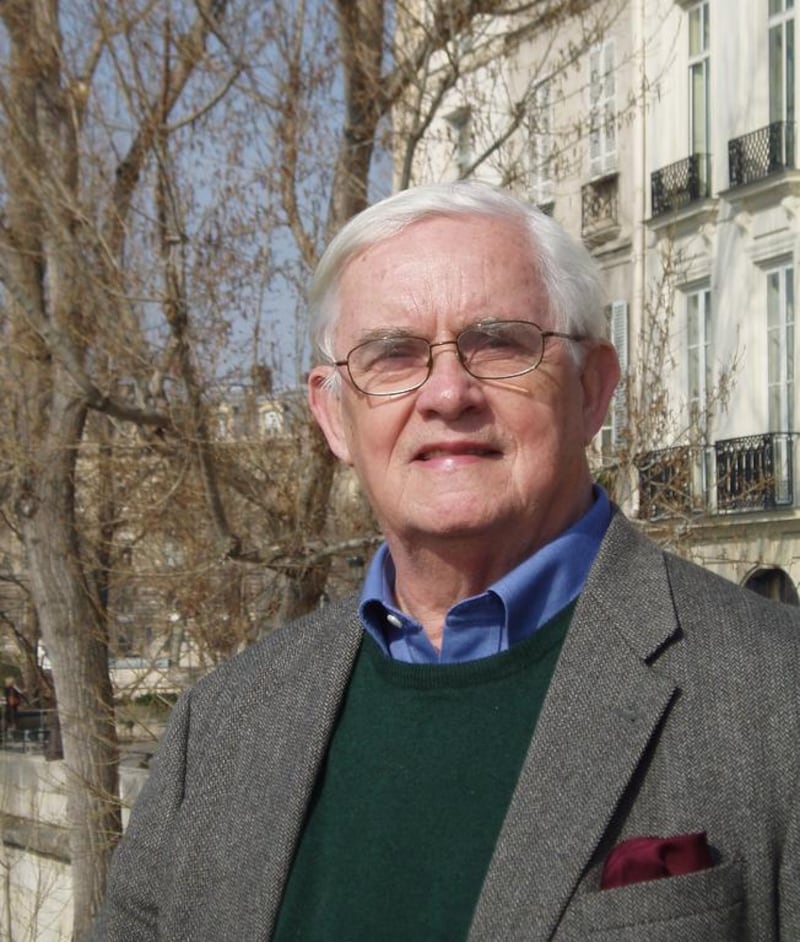John Logsdon, a world-renowned analyst of space issues, says initiatives such as the UAE Space Agency and Emirates Mars Mission have put the UAE on the map.
“They’ve made a very visible and somewhat bold start in becoming part of the world space community,” he says. The former member of the Nasa advisory council and exploration committee is currently professor emeritus of political science and international affairs at George Washington University. Mr Logsdon says the UAE’s space programme stands to have “direct benefits on Earth” – from business and technical expertise to boosting the country’s image.
Here he talks to The National about space and the UAE.
Is the UAE on the radar of people in the international space community?
Yes. By forming the space agency, by announcing the Mars mission, by being visible in various international meetings, I think this has been a rather bold start for the UAE space initiative.
Sheikh Mohammed bin Rashid, Vice President of the UAE and Ruler of Dubai, said of the Mars mission “it is not a cost, it is an investment”. What’s your take?
Investment can have many pay-offs. Some of them can be directly economic. And then there’s creating capabilities in things like high-quality manufacturing, precision manufacturing, quality control – all of the disciplines necessary to develop a successful spacecraft. All of those have applicability to the broader economy. So it does stimulate the development of modern technological capabilities.
Does it do so in a measurable way?
Measurement may be not immediate. Investments can pay off in the long-term after all. But I think it’s also an investment in signalling to the rest of the world that the UAE is very serious about being a significant player in the space arena. That’s a kind of political pay-off. If a country is going to invest in the space sector, I think they’re liable to invest in a mixture of things that have a direct economic and public-good pay-off, and things that bring prestige to the country. After all, the Arab world [many] years ago was a leader in science.
But is the UAE the first in the broader region to make a mark? Lebanon had a programme in the 1960s, while Iran has launched an experimental satellite.
I would say that no one really sees the UAE programme as driven by the same motivations as Iran, which has security related motivations. The perception is that the Emirates is in this for reputational and economic pay-off.
What about the benefits in terms of human capital?
People who start space programmes think that they will motivate the young people in their populations to excel in science, technology, engineering and mathematics, and create a technically capable industrial base. Not all the people who are motivated will get to work on a space programme. [But they might work in other] high-tech fields.
Do you think it would fit the UAE’s strategy to undertake a manned space mission?
The resources are there in terms of money to develop those capabilities, should there be a decision to do that. But it’s hard. The entrepreneurs that are trying just to do [manned] suborbital flights are finding it difficult. Orbital flight [is] one of the most challenging technical things that humans can do.
What is the historical perspective?
[The former US president] Kennedy’s decision to go to the Moon had nothing to do with economics. It was a pure Cold War competitive decision to use space accomplishment as an indicator of the power of a society. That was in the context of a kind of zero-sum, two-country competition with the Soviet Union. But using space achievement as an indicator of the power of a society seems to me still to be a valid motivation.
And will it always be so? Will it always be about prestige, or will manned space flight ever have an economic pay-off?
There are a number of entrepreneurs – the most visible is Richard Branson, with Virgin Galactic – who think that there is a business case for carrying people just up and down to over 100 kilometres with so-called suborbital space flight – space tourism. And I think that’s achievable. Whether there’s a sustainable market, I don’t know. It’s a lot easier than getting into orbit. And then there are people who believe that the private sector will in the next 10, 20 or 30 years be routinely transporting people into orbit, and perhaps even beyond, who think there’s a business case for that.
And do you think there is a business case?
As a tourism experience I doubt it. I don’t think there’s a large enough market really to pay the price of orbital journeys, to sustain a business. But the next step beyond that is a space-based economy: resource-extraction activity on the Moon, asteroids, on Mars, which could provide the basis for frequent human journeys. And there are a number of visionaries, some of them practical visionaries, who think that that is an achievable future.
The global space industry is valued at more than US$300 billion globally. What’s behind that?
If you look at that number, almost $250bn of that is from using space – particularly for communication: satellite television, that sort of thing. So it’s not from building things that go into space, it’s from using them.
Are any other Middle East countries of note space-wise?
Not yet. I think it’s the UAE initiative that has caught everyone’s attention.
business@thenational.ae
Follow The National's Business section on Twitter





